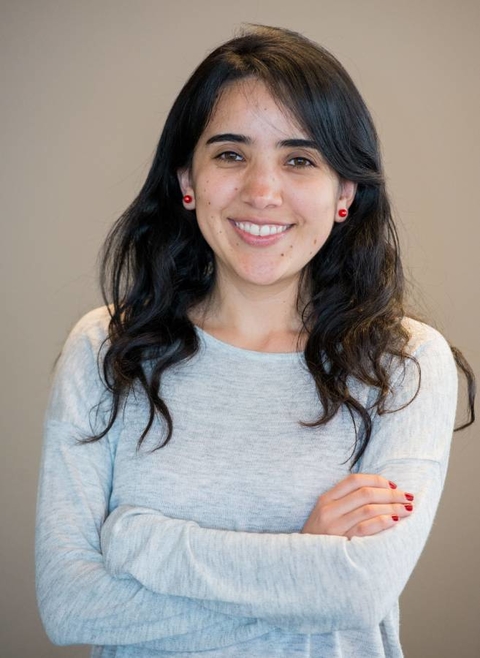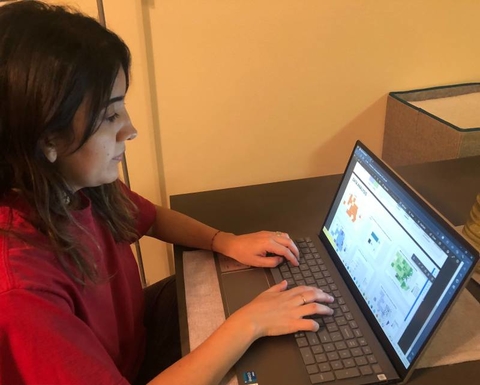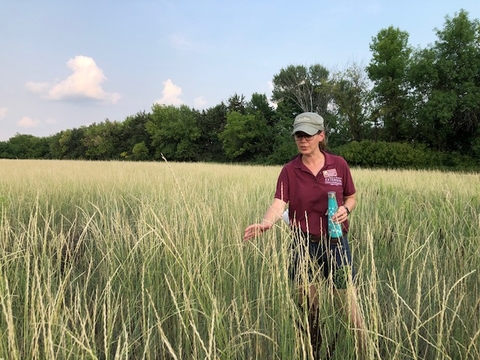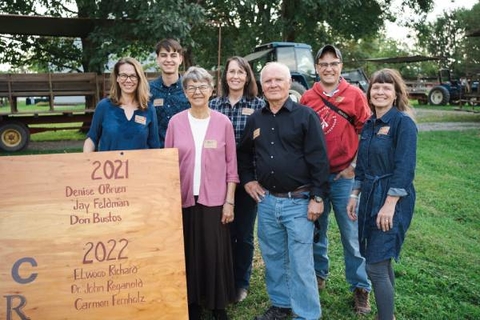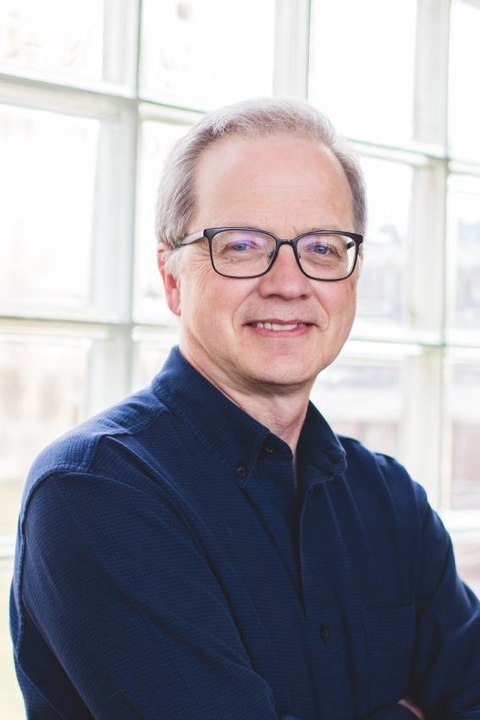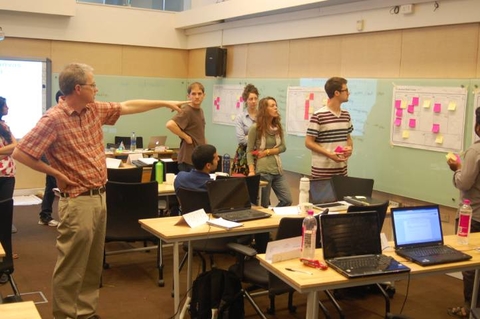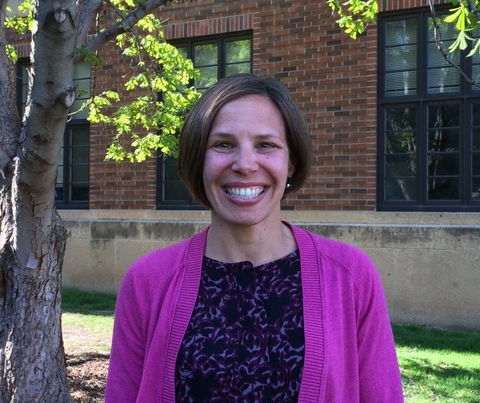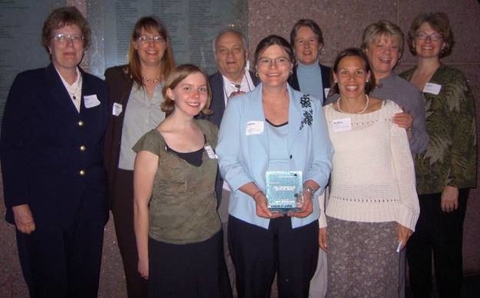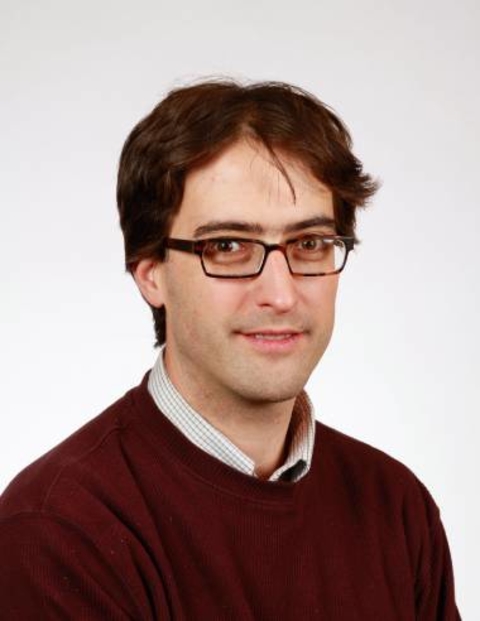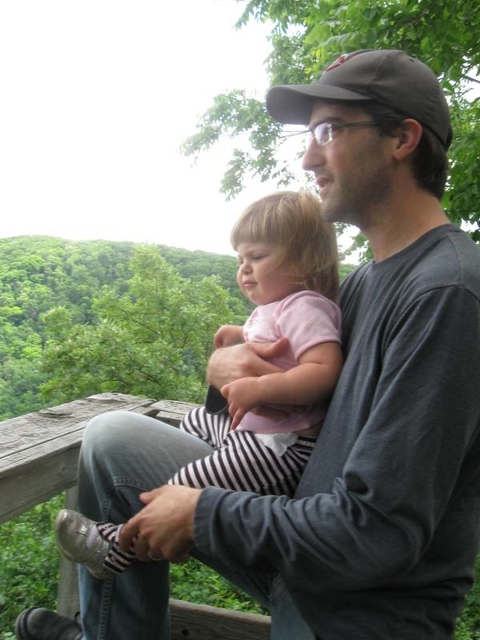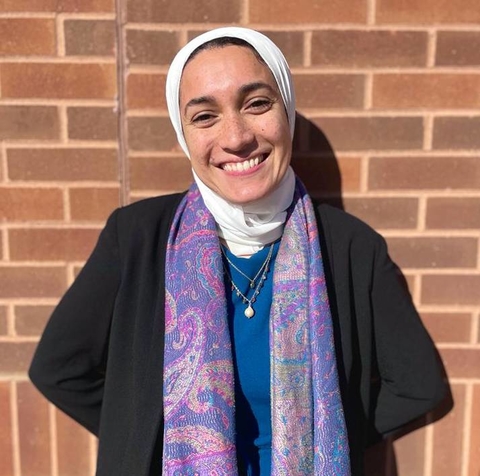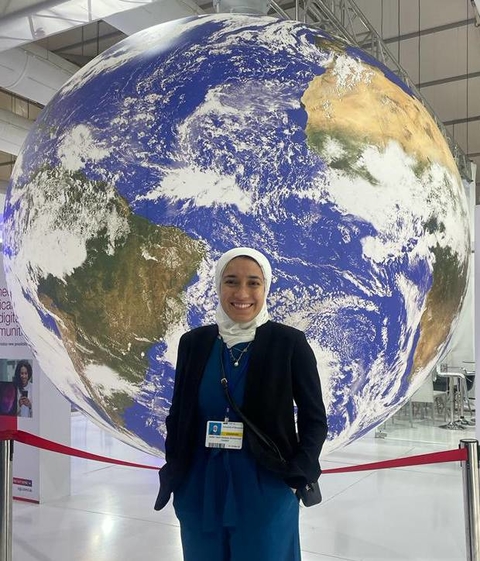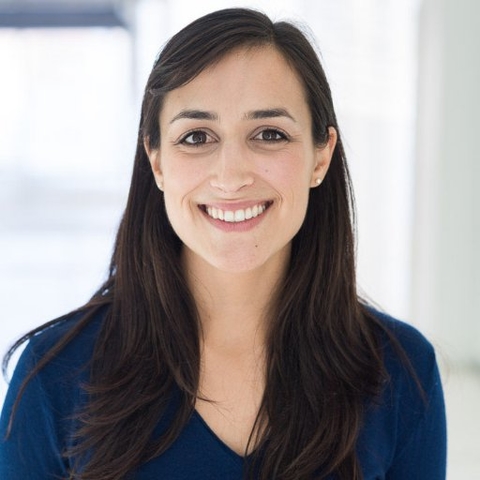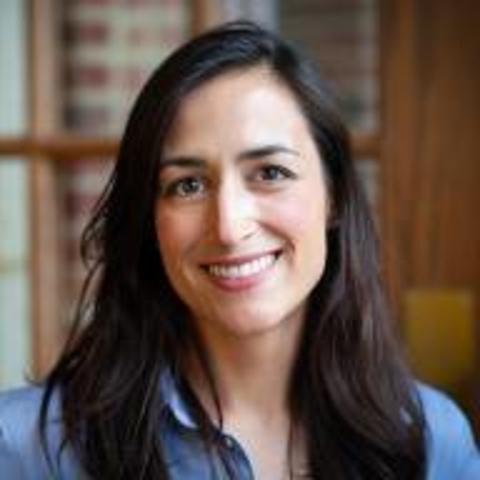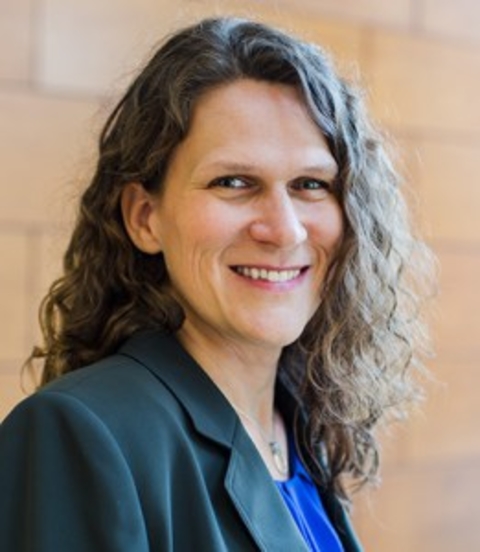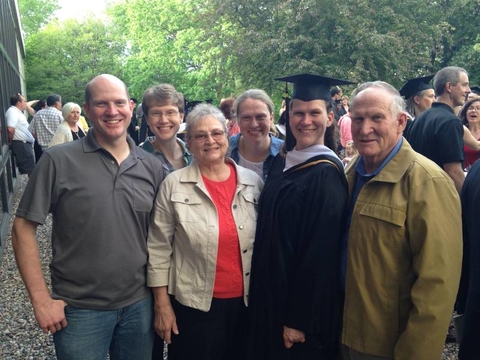The Humphrey School of Public Affairs ranks among the top professional public policy and planning schools in the nation. Explore and learn about the mission, vision and legacy of this prestigious school.
RSDP has partnered with the Hubert H. Humphrey School of Public Affairs for many years, supporting sustainability projects together and making a lasting impact across Minnesota. A series of profiles of students, faculty and staff who have worked with the Humphrey and RSDP tells the story of this collaboration and shines a light on the high caliber leadership and scholarship the Humphrey fosters.
Humphrey School Dean Botchwey recently accepted an invitation to join the RSDP’s Council of Deans, a leadership body within RSDP. In doing so, Dean Botchwey joins the ample list of people at the heart of this collaboration. Through this community of changemakers, we can begin to see the embodiment of the depth, breadth and impact of these efforts. Read about a few of the changemakers from this remarkable community below.
Adriana Castillo Castillo
Castillo Castillo is first and foremost, a student passionate about her education. She has a Master’s Degree of Urban and Regional Planning from the Humphrey School and is currently a Ph.D. Candidate in the Department of Applied Economics. Her research interests are environmental economics, water quality, and water quality management in developing countries. Castillo is originally from Colombia. Before graduate school, she worked to help design and implement impact evaluations in different Latin-American countries.
Working in collaboration with the Humphrey school and RSDPs. Castillo Castillo helped research outreach for a statewide project titled, “Safe Drinking Water at the Kitchen Sink.” The effort focused on informing private well owners across Minnesota of testing and educational programs available to them. She also made coding programs to run data analysis to better understand how private well owners related with the water quality at their kitchen sink. She’s proud to have supported incentives for well owners to participate in programs to improve their drinking water quality.
“Working with both Humphrey and RSDP was such a pleasure,” recalls Castillo Castillo. “I was able to work with people from rural communities and I actually learned a lot on how things work outside the University. It was a great experience being connected with both entities because the RSDP’s have a reputation of being a huge help for rural organizations. Additionally, they have really knowledgeable staff that is always willing to collaborate and to help support other organization’s efforts and achievements.”
Constance Carlson
Constance Carlson is the Assistant Statewide Director for the Regional Sustainable Development Partnerships. In this role, Carlson serves the entire RSDP organization, with key responsibilities focused on communications, operations, and administration. She is responsible for communicating the work underway throughout Minnesota, shining a spotlight on the projects and people who are driving sustainability initiatives in partnership with RSDP and the University. Additionally, she works with the University of MN and UMN-Extension to ensure that RSDP policies and procedures are aligned, running smoothly and serving our staff, partners and communities.
Carlson is a current Masters of Public Affairs student at the Humphrey School. She discovered this program after hearing a presentation by a former MPA student who had worked on an RSDP project. This graduate program is geared toward mid-career professionals interested in enriching their careers through the study and applied exploration of leadership, policy and research. The first year of the program is cohort based, bringing together 25 - 30 professionals from all walks of life to engage in peer-to-peer dialogue and projects on 21st century leadership practices and challenges. Following the first year, MPA students complete 14 more credits in their chosen focus to graduate.
“I'm proud to join the list of colleagues who've received their degrees from the Humphrey School and are now carrying forth the mission of the Humphrey School to advance the common good,” says Carlson. “Although I’m early in the pursuit of my degree, I have already had meaningful opportunities to apply my coursework to my day-to-day work with RSDP.”
Read more about Carlson and her new role.
Fred Rose
Fred Rose is Adjunct Faculty for the Center for Science, Technology and Environmental Policy (CSTEP) at the Humphrey School of Public Affairs, currently teaching climate-related policy and advocacy. He is also a Climate Ambassador for Climate Interactive. Rose has over 40 years experience engaging with complex grand challenges. While at the UMN he has created a range of experiential and international courses to help students become changemakers and advocates for social and environmental issues. Previously he had a long career with Honeywell in various global engineering and strategy roles. He also founded two non-profits, Acara Institute and High Tech Kids.
As a Humphrey School professor, Rose’s work with students over the years has created multiple touchpoints with RSDP. While teaching the capstone course for the Humphrey School’s CSTEP program, many of Rose’s students found project and interaction opportunities across the state with RSDP.
“The relationship is a two-way street,'' says Rose. ”One of the biggest benefits for RSDP is having the opportunity to work with the Humphrey students. The young professionals at Humphrey are able to provide a tremendous amount of work and time to the clients they work with. Plus, we get lots of students who don’t know anything about greater Minnesota and the experience is really valuable to them. The value RSDP brings to Humphrey is that window into the rest of the state. It’s useful for Humphrey to know what they should be looking for from a policy standpoint. The relationship is extremely important for both groups, and both groups bring a special perspective.”
Lissa Pawlisch
Lissa Pawlisch is the Clean Energy Resource Teams (CERTs) Director for the University of Minnesota Extension’s Regional Sustainable Development Partnerships. Over the past nineteen years she has guided CERTs, a unique program partnership designed to connect Minnesotans to community-scale clean energy projects. Lissa is passionate about working directly with communities to help them understand their energy options, the values that drive their projects, how technologies and practices can be deployed, and how to harness community capacity to affect change.
Before CERTs, Pawlisch was a Humphrey School student. In 2001 she set out to pursue her Master’s Degree in Science, Technology and Environmental Policy and ended up taking a summer internship with an RSDP partner focused on clean energy. It was then that she started working on a statewide Clean Energy Resource manual, a foundational document that eventually led to Pawlisch launching CERTs with the support of RSDP, the Minnesota Department of Commerce, and the Minnesota Project. Pawlisch sees her time at Humphrey and the ongoing collaborations since, as instrumental to the work of CERTs.
“We've collaborated with the Humphrey School for many years, sort of all along the way. The faculty are tremendous resources, really exceptional human beings, and great collaborators. They also bring students to the table to do meaningful project work, and the partnerships are full of meaningful project work. The Humphrey School has been such an essential ally in moving those projects forward,” says Pawlisch.
“I always think about how, from a student perspective, working with the Partnerships shaped my whole sense of what I wanted to do with my life. So the idea of getting to work with students during graduate school and help them find an experience that may influence them to say –‘This rural, community-based, and place-based work does matter’ – is really terrific.”
Greg Schweser
In his ten years as Statewide Director of Sustainable Agriculture and Food Systems for RSDP, Greg Schweser has worked with countless community partners throughout Greater Minnesota. In his role, he helps connect people and community to knowledge within the University. Schweser is well-known by fellow University staff, faculty, researchers for his approachability and wide range of project expertise. He has experience with topics like: passive solar greenhouse design, meat processing, hazelnut production, new berry crops, cover crop research, and food forests. Within RSDP, he’s considered a go-to-guy for his reliable project insights and ample community connections.
In 2006, Schweser began his track with the Master of Urban and Regional Planning (MURP) degree program at the Humphrey School. But when he graduated in 2008, the housing market crashed and as a result, regional planner jobs were few and far between. That’s when Schweser decided to fall back on his past experience in local foods and sustainable agriculture, eventually leading him to his current role with RSDP.
“I was able to pivot and take the most important things I learned during my time at Humphrey and apply that to what I do now. At Humphrey we really focused a lot on stakeholders - stakeholder identification and how to involve your stakeholders. Meaning, how do you facilitate the opportunity for community members to drive concepts and plans?” recalls Schweser.
“At RSDP we have our communities on board. We have our work groups and we have our board members. They're in charge of the show. They set our priorities, envision our program’s impact, and approve of our portfolio of projects. We help make the appropriate university and community connections and help make sure projects are successful. Sometimes there are limitations, but they're really the ones who are running things. That’s the ideal model that's hammered into us in the Humphrey program. So there's a lot of similarities between the work I do and what I learned there.”
Dalila Hussein
Dalila Hussein is an Egyptian second-year Masters of Development Practice student at the Humphrey School. She is passionate about economic empowerment, livelihood creation, social entrepreneurship, and sustainability issues. Her research focuses on the development field, specifically, program evaluation and economic development roles. In addition, she is currently expanding her work in impact evaluation and community-based research. Hussein received her Bachelor’s degree from Cairo University with a major in Statistics and a minor in Economics. Before pursuing an international development career, Dalila worked in the market research analytics field for three years, consulting businesses and INGOs in Egypt and the Middle East.
“It starts to feel like home,” Hussein says when reflecting on her time at Humphrey and her work in Central Minnesota. In the spring, Hussein landed a position with the Mid-Minnesota Development Commission, an RSDP partner located in Willmar. The project, Multilingual Community Journalism, focused on equipping non-native English speaking leaders with skills to disseminate information to their community in their native language.
“I didn't have it in mind to work during my first year. As an international student, I wanted time to adjust and I knew my class load would be immense. But then the position was advertised by RSDP to my professor. It was such a cool opportunity, I just wanted to give it a try. So I applied. I honestly don't know how I got it, but I did! It was a great experience. The project had a community engagement piece that I personally loved, because that is the stakeholder I want to work with when I graduate. I just really appreciate the set up of RSDP project opportunities.”
Elise Harrington
Elise Harrington is an Assistant Professor at the Humphrey School of Public Affairs at the University of Minnesota in the Science, Technology, and Environmental Policy area. Her ongoing work focuses on how social and regulatory systems underpin knowledge about climate change, low-carbon technology development, and governance models for solar and electricity access. In the past, she has worked on research projects in Kenya, India, and the United States. Her most recent work in Kenya examined the role of intermediaries in off-grid solar, with an emphasis on trust and consumer education. Harrington holds a Ph.D. in Environmental Policy and Planning from the Massachusetts Institute of Technology’s Department of Urban Studies and Planning and a B.A. in Architecture and Environmental Studies from the University of Pennsylvania.
Harrington feels the informal connections between the Humphrey School and RSDP are just as meaningful as the formal ones. Upon moving to Minnesota and starting her current role, Harrington says that it was CERTs Statewide Director, Lissa Pawlisch, who informally helped her gain familiarity to the local landscape of her work. More formally, Harrington recently teamed up with CERTs and other organizations on the Energy Navigator Landscape Assessment. The project aims to help Minnesotans navigate energy assistance programs, bill payments and other energy services and resources.
“One of the reasons I think this combination of Humphrey and CERTs works so well, is that many of us who sit in the academic world are applied scholars. We want our work to matter to the world and have an impact on people's lives,” says Harrington. “And that is the very core to what CERTs does. CERTs works with organizations who are doing this work to build a strong connection between those on-the-ground individuals, organizations, and the University, to provide them with that expertise to make really complicated technical decisions.”
“CERTs’ role in Extension is somewhat of a unique one. There are other Extension programs that have an energy focus, but it's not one that every state has. I think you can really see this opportunity where you connect what Extension does really well, which is bridging the University knowledge to the state in a really meaningful way, and what CERTs is doing, which is making energy issues visible and actionable to people.”
Mary Oldham Hannemann
Mary Oldham Hannemann leads student engagement strategy for University of Minnesota Extension’s RSDPs. In this role, Mary helps connect University of Minnesota students with RSDP projects. Her work includes providing behind-the-scenes support, promotion of student openings, and acting as a liaison within the University. She enjoys empowering students to follow their passion for a sustainable future and connecting people with disparate interests across curriculum and sectors. She has a master of public policy degree from the University of Minnesota’s Humphrey School of Public Affairs and a B.S. in chemical engineering from Iowa State. She previously worked in manufacturing in the Los Angeles area and with students in Mombasa, Kenya.
Today Hannemann works to connect Humphrey students with RSDP partnership opportunities, but not long ago, she was a Humphrey student herself. When Hannemann decided to pursue her master’s degree in 2013, she knew the type of experience she was looking for in her education. She chose the Humphrey School to follow her interest in environmental sustainability work. But with two careers behind her, she knew she was headed for an interdisciplinary route.
“I found the Humphrey school to be a really positive place to build connections between different areas of my own life. As someone who'd already been working out in the world, it was attractive to me that the Humphrey School had capstone projects. I knew I wanted to use my time as a student to keep building community- based experience and skills. That’s also one of the things that drew me to the work that the Regional Partnerships are doing with community partners.”
“I grew up on a farm in Southern Iowa, and the importance of having healthy and thriving rural communities is something that's just part of my roots. So when an opportunity came up for me to support student engagement at RSDP, I felt like it was bringing together some really important aspects of what I care about.”


